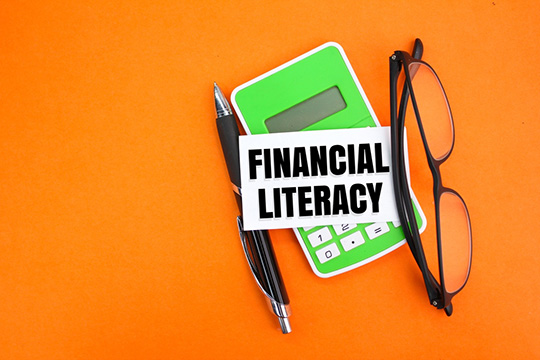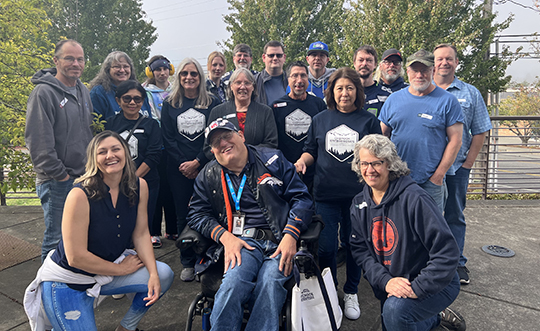Empowering Skagit's Immigrant Community Through Financial Literacy

15 Apr 2024
News
April is not just about blooming flowers and spring showers; it's also National Financial Literacy Month in the United States. This month reminds us of financial literacy's critical role in empowering individuals and communities nationwide. In Skagit County, Washington, the Economic Development Alliance (EDASC) recognizes the importance of promoting financial literacy, particularly among immigrant populations, to foster economic stability and growth.
Understanding the Significance of National Financial Literacy Month
National Financial Literacy Month is an annual initiative highlighting the importance of financial education and understanding. It allows organizations, financial institutions, and communities to raise awareness and promote financial wellness. From budgeting and saving to investing and retirement planning, financial literacy encompasses a wide range of essential skills necessary for navigating the complexities of personal finance.
Bridging the Gap: Importance of Financial Literacy for Immigrants
Immigrants to the United States may need to become familiar with the U.S. banking system to access financial products and services that promote economic inclusion and help them build a secure financial future for themselves and their families. Establishing a relationship with a bank can help newcomers along this pathway.
Karla Nelson, a Small Business Specialist at U.S. Bank in Skagit County, discusses the importance of financial literacy for immigrants and emphasizes the role of banking relationships in providing a pathway to economic security.
"Opening an account can seem daunting for immigrants unfamiliar with the U.S. banking system," Nelson said. "We like collaborating with nonprofit organizations to provide financial education and help individuals understand how banking works."
Some of the nonprofits Nelson has partnered with include Youth Net, Mount Vernon Chamber of Commerce’s Latino Business Leaders, and EDASC’s Startup School.
Insights from Skagit Banking Professionals
Othon Rojas-Vega, branch manager at the newly opened WECU Mount Vernon Financial Center, notes that immigrants can have some very real challenges to establishing a bank account for those without a social security number Individual Taxpayer Identification Number (ITIN).
“Having the proper ID is usually the biggest challenge when they come in to open an account,” he said.
WECU has streamlined requirements for opening an account, and anyone who lives, works or worships in Washington state can open an account with just a state driver’s license, passport or consular identification card.
Nelson highlights the U.S. Bank in Mount Vernon's efforts to support immigrant communities in building banking relationships and accessing financial services.
"Here at U.S. Bank, we have a lot of tools to help individuals understand banking, like bank statements and online banking in both English and Spanish," says Nelson. "We also have bilingual employees and access to language translation services to accommodate diverse linguistic needs."
Rojas-Vegas adds he is proud to note that 50% of his branch staff is bilingual, and WECU also has access to an interpreting service that can access an interpreter by phone for other languages.
Establishing credit is another area immigrants may find challenging. Both WECU and U.S. Bank offer ITIN loans, which uses the ITIN instead of a social security number.
“There is a misconception that ITIN clients will default on their loans, but our numbers show just the opposite,” Rojas-Vega said.
Building Trust
U.S. Bank prioritizes financial access and inclusion. Drawing on her 22 years of experience in consumer and business banking, Nelson emphasizes the importance of building trust with immigrant communities.
"I love to teach financial education and be a part of the community," says Nelson. "As an immigrant, I understand banking challenges in a foreign country. Teaching financial literacy is a joy."
Rojas-Vega is an immigrant as well, who has spent his career banking. He knows how strong personal bonds within the Skagit County Latino community are, and he deeply appreciates when WECU receives referrals from within this community.
“They really value referrals and personal relationships, and it’s rewarding to know we are building that trust,” he said.
National Financial Literacy Month reminds us of the transformative power of financial education and inclusion. Skagit County continues to work toward a more financially resilient and prosperous future for all through collaborative efforts and community engagement.
More Topics


Blossoming Beyond Borders: Skagit Valley Tulip Festival and the Economic Growth of Skagit County
Apr 1 2024

